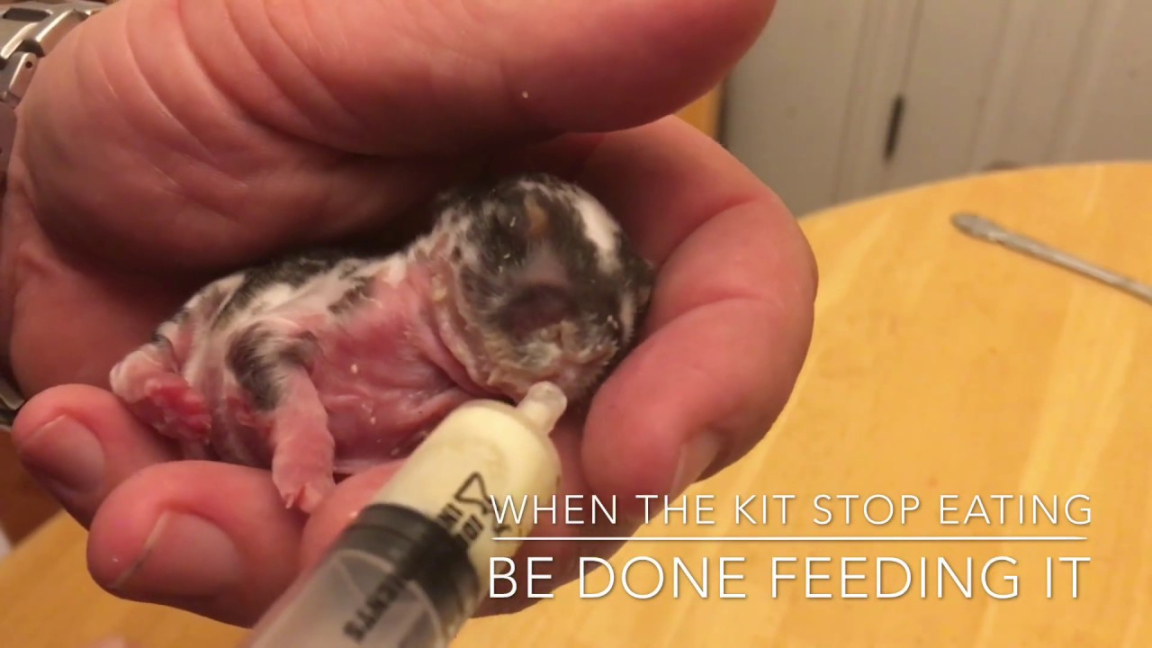What Can I Feed a Newborn Rabbit?
Feeding a newborn rabbit can be a delicate process, as their digestive systems are still developing. It is crucial to provide them with the right nutrition to ensure their growth and overall health. Here is a guide on what to feed a newborn rabbit:

Mother’s Milk or Commercial Milk Replacer
The ideal nutrition for a newborn rabbit is its mother’s milk. If the mother is available, allow the kits to nurse from her for at least the first eight weeks of their lives. Mother’s milk provides essential nutrients, and antibodies, and helps establish a healthy gut flora.
If the mother is not present or unable to produce milk, a commercial milk replacer specifically formulated for baby rabbits is the next best option. Avoid using regular cow’s milk or other substitutes, as they can cause digestive issues and fail to provide adequate nutrition.
Hay and Pellets
As the newborn rabbit grows, it should gradually start transitioning to a diet consisting of hay and pellets. Hay is vital for their digestive health and teeth development. Fresh timothy or grass hay should be available at all times to allow the rabbits to graze and chew.
Pellets formulated for young rabbits should also be introduced gradually into their diet. These pellets contain the necessary nutrients and minerals required for their growth. Consult a veterinarian for the appropriate pellet brand and portion sizes based on the rabbit’s age and weight.
Vegetables and Greens
Once the newborn rabbit is around three to four weeks old, you can begin incorporating fresh vegetables and greens into their diet. Start with small amounts and introduce new options gradually to avoid digestive upset.
Good vegetables to feed a newborn rabbit include romaine lettuce, carrot tops, parsley, cilantro, and dandelion greens. Avoid feeding them vegetables high in sugar or starch, such as carrots and fruits, as they can cause digestive imbalance and diarrhea.
Water
Providing a constant supply of clean, fresh water is essential for a newborn rabbit’s health. Use a shallow water dish or a water bottle with a nipple attachment suitable for small animals. Make sure to wash and refill the water container daily to avoid bacterial growth.
Frequently Asked Questions (FAQs)
Can I feed newborn rabbits regular cow’s milk?
No, regular cow’s milk is not suitable for newborn rabbits. It lacks the necessary nutrients and can cause digestive issues. It is best to use a commercial milk replacer specifically formulated for baby rabbits.
When can I start introducing solid foods to newborn rabbits?
Solid foods, such as hay and pellets, can be gradually introduced when the newborn rabbit is around two to three weeks old. Make sure the transition is done slowly to avoid digestive upset.
What vegetables should I avoid feeding newborn rabbits?
Avoid feeding newborn rabbits vegetables high in sugar or starch, such as carrots and fruits. These can disrupt their sensitive digestive systems and lead to diarrhea.
How much water should a newborn rabbit drink?
A newborn rabbit should have access to clean, fresh water at all times. They will drink as much as they need, and it is important to regularly check and refill their water container to ensure an adequate supply.
Related Articles…
Copyright Notice:
This website utilizes images found online, all copyrights are retained by their original owners. If you would like an image removed, kindly contact us.